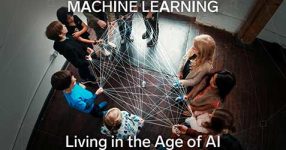In the ever-evolving landscape of technology, Artificial Intelligence (AI) algorithms have emerged as transformative tools, promising efficiency and personalization across various industries. However, beneath this veneer of progress lies a profound concern — “The Dark Side of Algorithms.” This shadowy realm is marked by ethical dilemmas, biases, and far-reaching societal implications.
Unveiling Ethical Dilemmas in Algorithmic Decision-Making
The implementation of AI algorithms raises critical ethical dilemmas, where these systems wield significant power to make impactful decisions without transparent decision-making processes. The lack of accountability sparks debates about the ethical implications, especially when biased outcomes and unintended consequences emerge. The need for ethical oversight becomes paramount to navigate the intricate web of algorithmic decision-making.
Confronting Bias: A Pervasive Challenge in AI Algorithms
A pervasive issue within AI algorithms is the presence of bias, often ingrained from historical biases within training datasets. These biased algorithms can perpetuate and exacerbate societal inequalities, leading to discriminatory outcomes in hiring processes and law enforcement decisions. Addressing and mitigating bias become crucial challenges, demanding collaboration among developers, ethicists, and policymakers to ensure fairness and equity.
Privacy Concerns in the Age of AI Surveillance
AI algorithms deployed in surveillance and data analysis raise significant privacy concerns due to the extensive collection and analysis of personal data. Technologies like facial recognition undergo scrutiny for potential misuse and encroachments on civil liberties. Striking a delicate balance between the benefits of AI-driven advancements and safeguarding individual privacy requires robust regulations and ethical guidelines to protect the rights and autonomy of individuals.
The Economic Tightrope: Automation, Job Displacement, and Inequality
While AI algorithms promise efficiency and automation, they bring the looming risk of job displacement and economic inequality. Automation in certain sectors may lead to job losses, necessitating workforce adaptation. This poses challenges for societal equity, emphasizing the need for comprehensive education and workforce development programs to bridge the gap and ensure a just transition.
Navigating the Shadows: Prioritizing Ethical Oversight
In the realm of AI algorithms, transformative potential coexists with a dark underbelly. To harness the benefits of AI while mitigating its darker repercussions, ethical oversight, transparency, and inclusivity must be prioritized. This demands a proactive approach to ensure that AI contributes positively to society without compromising fundamental values.
“The Dark Side of Algorithms” may be directed by Dorothe Dörholt, but it is a collective responsibility to shape the narrative of algorithmic influence on our lives. As algorithms increasingly determine our fates, the consequences of their decisions ripple through society, often with unforeseen and profound impacts. It is only through careful consideration, ethical vigilance, and collective action that we can navigate the shadows cast by the ever-expanding reach of AI algorithms.












